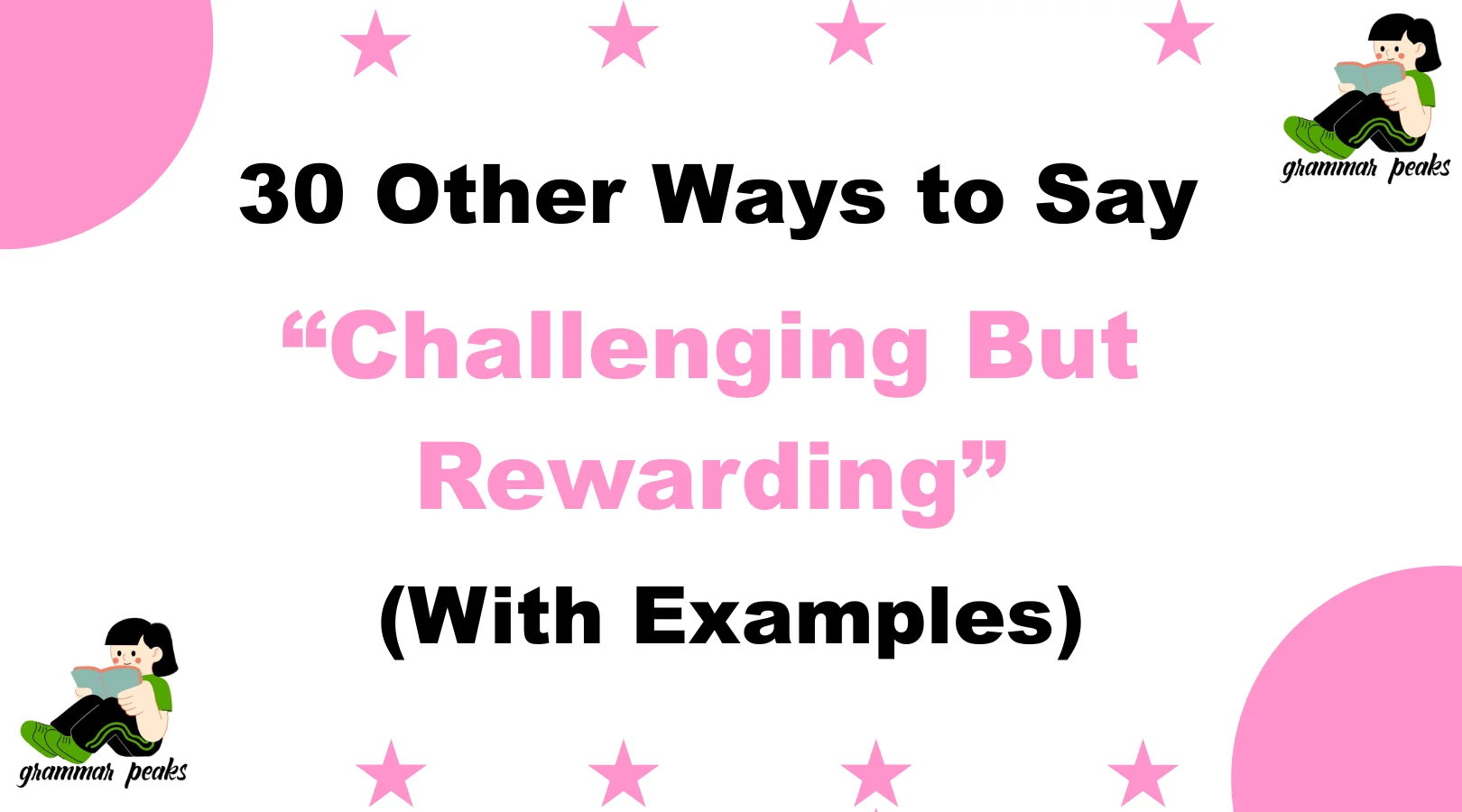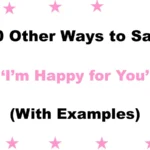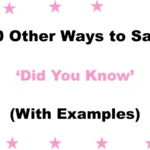When describing a task, project, or experience that was tough yet worthwhile, saying “challenging but rewarding” gets the point across—but it’s overused and can sound generic.
Whether you’re writing a resume, reflecting on a learning journey, or sharing insights in a professional setting, there are many more vivid, personal, and polished ways to express the same idea. Below are 30 alternatives to help you describe difficult yet fulfilling experiences with clarity and depth.
What Does “Challenging But Rewarding” Mean?
“Challenging but rewarding” means something was difficult, pushed your limits, or required effort—but the outcome was worthwhile, satisfying, or meaningful. It reflects personal growth, achievement, or fulfillment after a tough experience.
When to Use “Challenging But Rewarding”
This phrase is typically used in:
- Job interviews or resumes to reflect on projects or roles
- Academic writing about courses or research
- Personal development stories or motivational content
- Feedback about events, internships, or team efforts
Is It Professional or Polite to Say “Challenging But Rewarding”?
Yes, it’s polite and professional—but it’s often vague. It’s a safe phrase, but lacks specificity. Using stronger, clearer alternatives can make your communication more engaging, unique, and memorable, especially in formal writing or interviews.
Pros and Cons of Using “Challenging But Rewarding”
Pros:
- Universally understood
- Safe and professional
- Communicates balance between difficulty and success
Cons:
- Overused and generic
- Doesn’t highlight specifics or outcomes
- Can feel like filler in writing or conversation
Synonyms For Challenging But Rewarding”
- A Steep Learning Curve That Paid Off
- Demanding Yet Deeply Fulfilling
- Pushed Me Beyond My Comfort Zone
- Difficult, But Worth Every Minute
- Tough But Transformative
- A Growth Opportunity with Real Payoff
- Rewarding in Ways I Didn’t Expect
- Tested My Limits—in the Best Way
- Taught Me More Than I Expected
- Intense but Incredibly Valuable
- Exhausting but Eye-Opening
- A Real Test of My Abilities
- Demanding Yet Enriching
- Hard Work That Paid Off
- Mentally Tough but Rewarding
- Uncomfortable but Worthwhile
- A Lesson in Persistence
- A Journey That Changed Me
- Productive Struggle
- More Work Than Expected—But Worth It
- Pushed Me to Level Up
- Intimidating at First, But Empowering
- A Stretch, But I Grew
- It Made Me Stronger
- Demanded the Best of Me
- Fulfilling Despite the Challenges
- Stretched Me in All the Right Ways
- Hard at the Time, Worth It Now
- A Trial That Taught Me a Lot
- Demanded Grit, Delivered Growth
1. A Steep Learning Curve That Paid Off
Definition: A tough experience with high growth.
Explanation: Implies you had to catch up quickly but succeeded.
Example: “The role had a steep learning curve that paid off in skills and confidence.”
Best Use: Job interviews, new skills.
Worst Use: If you didn’t actually improve.
Tone: Reflective, professional.
2. Demanding Yet Deeply Fulfilling
Definition: Something that required effort but was emotionally or intellectually satisfying.
Explanation: Highlights emotional investment.
Example: “Volunteering abroad was demanding yet deeply fulfilling.”
Best Use: Service, education, personal stories.
Worst Use: Light or simple tasks.
Tone: Emotional, human-centered.
3. Pushed Me Beyond My Comfort Zone
Definition: Something that forced growth through discomfort.
Explanation: Emphasizes development through challenge.
Example: “Leading the project pushed me beyond my comfort zone—and I’m better for it.”
Best Use: Growth moments.
Worst Use: When you weren’t truly challenged.
Tone: Honest, growth-focused.
4. Difficult, But Worth Every Minute
Definition: Time-consuming but valuable.
Explanation: Highlights time investment and eventual satisfaction.
Example: “Writing my thesis was difficult, but worth every minute.”
Best Use: Academic or creative work.
Worst Use: Quick tasks.
Tone: Determined, proud.
5. Tough But Transformative
Definition: Something that changed you significantly.
Explanation: Great for personal development.
Example: “The training was tough but transformative—I’m more confident now.”
Best Use: Life changes, leadership growth.
Worst Use: Small or routine tasks.
Tone: Empowering, personal.
6. A Growth Opportunity with Real Payoff
Definition: A chance to grow that had tangible outcomes.
Explanation: Balances effort and results.
Example: “Managing a team was a growth opportunity with real payoff in leadership skills.”
Best Use: Career progress, challenges.
Worst Use: Menial or short-term tasks.
Tone: Motivated, forward-looking.
7. Rewarding in Ways I Didn’t Expect
Definition: Surprising but meaningful results.
Explanation: Great when lessons were learned unintentionally.
Example: “The mentorship was rewarding in ways I didn’t expect.”
Best Use: Reflections, personal experiences.
Worst Use: If there was no real reward.
Tone: Warm, thoughtful.
8. Tested My Limits—in the Best Way
Definition: Challenging but energizing.
Explanation: Shows you were stretched and succeeded.
Example: “The bootcamp tested my limits—in the best way possible.”
Best Use: Physical, mental, or professional challenges.
Worst Use: Light or non-rigorous efforts.
Tone: Energizing, confident.
9. Taught Me More Than I Expected
Definition: Emphasizes lessons learned.
Explanation: Focuses on growth, not just outcome.
Example: “That project taught me more than I expected about communication.”
Best Use: Internships, collaborations, surprises.
Worst Use: When there was minimal learning.
Tone: Humble, reflective.
10. Intense but Incredibly Valuable
Definition: High effort, high return.
Explanation: Implies pressure and reward.
Example: “The two-week training was intense but incredibly valuable.”
Best Use: Short-term, high-pressure scenarios.
Worst Use: Repetitive or easy tasks.
Tone: Strong, positive.
11. Exhausting but Eye-Opening
Definition: Draining yet enlightening.
Explanation: You were pushed to your limits but gained valuable insights.
Example: “The internship was exhausting but eye-opening—I gained a real-world perspective.”
Best Use: First-time experiences, field work, or travel.
Worst Use: Basic or repetitive tasks.
Tone: Honest, reflective.
12. A Real Test of My Abilities
Definition: A situation that measured your competence.
Explanation: Implies you were seriously challenged and learned from it.
Example: “Leading the product launch was a real test of my abilities.”
Best Use: High-stakes or leadership experiences.
Worst Use: Simple or low-effort tasks.
Tone: Professional, self-assessing.
13. Demanding Yet Enriching
Definition: Challenging but rewarding through personal or intellectual growth.
Explanation: Emphasizes development over outcomes.
Example: “Balancing work and school was demanding yet enriching.”
Best Use: Dual commitments, study, or travel.
Worst Use: Tasks without growth.
Tone: Mature, insightful.
14. Hard Work That Paid Off
Definition: Effort that brought meaningful results.
Explanation: Simple but relatable phrasing.
Example: “It was hard work that paid off in the end.”
Best Use: Any goal-driven effort.
Worst Use: If success wasn’t achieved.
Tone: Practical, down-to-earth.
15. Mentally Tough but Rewarding
Definition: Intellectually or emotionally demanding.
Explanation: Highlights inner resilience.
Example: “Completing the certification was mentally tough but rewarding.”
Best Use: Studying, caregiving, or intense problem-solving.
Worst Use: Physically easy tasks.
Tone: Thoughtful, mature.
16. Uncomfortable but Worthwhile
Definition: Out of your comfort zone, but valuable.
Explanation: Emphasizes growth from discomfort.
Example: “Public speaking was uncomfortable but worthwhile.”
Best Use: Overcoming fear or learning.
Worst Use: Enjoyable or relaxed tasks.
Tone: Honest, self-aware.
17. A Lesson in Persistence
Definition: You learned to keep going despite challenges.
Explanation: Reflects discipline and patience.
Example: “Launching the app was a real lesson in persistence.”
Best Use: Long-term efforts or obstacles.
Worst Use: One-time or easy tasks.
Tone: Determined, respectful.
18. A Journey That Changed Me
Definition: A transformative experience.
Explanation: Broad but emotional and powerful.
Example: “Running that marathon was a journey that changed me.”
Best Use: Life-changing events or major goals.
Worst Use: Small-scale or casual things.
Tone: Reflective, emotional.
19. Productive Struggle
Definition: Difficulty that leads to positive results.
Explanation: Popular in educational and coaching contexts.
Example: “That semester was a productive struggle—I learned more than grades can show.”
Best Use: Learning, creative work, or research.
Worst Use: Tasks with no output.
Tone: Academic, purposeful.
20. More Work Than Expected—But Worth It
Definition: Surprising difficulty that paid off.
Explanation: Emphasizes effort and reward.
Example: “The side project was more work than expected—but worth it.”
Best Use: Unexpected challenges.
Worst Use: Tasks you didn’t complete.
Tone: Light, sincere.
21. Pushed Me to Level Up
Definition: Forced you to improve quickly.
Explanation: Implies growth and development.
Example: “Taking on that role pushed me to level up fast.”
Best Use: Job changes, promotions, or new environments.
Worst Use: When no improvement happened.
Tone: Motivational, modern.
22. Intimidating at First, But Empowering
Definition: Scary in the beginning but gave you confidence.
Explanation: Shows emotional progression.
Example: “Speaking at the conference was intimidating at first, but empowering.”
Best Use: Public tasks, leadership, presentations.
Worst Use: Tasks with no risk or fear.
Tone: Encouraging, inspirational.
23. A Stretch, But I Grew
Definition: You were pushed, but came out better.
Explanation: Conveys struggle and outcome briefly.
Example: “That startup role was a stretch, but I grew a lot.”
Best Use: Job growth, learning new skills.
Worst Use: Tasks that didn’t challenge you.
Tone: Confident, humble.
24. It Made Me Stronger
Definition: The challenge left you more capable.
Explanation: Simple and powerful phrase.
Example: “That experience was tough, but it made me stronger.”
Best Use: Personal challenges or setbacks.
Worst Use: Minor difficulties.
Tone: Resilient, emotional.
25. Demanded the Best of Me
Definition: You had to bring your full ability.
Explanation: Frames pressure as positive.
Example: “The final project demanded the best of me—and I delivered.”
Best Use: Capstone projects, exams, deadlines.
Worst Use: Low-pressure or incomplete tasks.
Tone: Competitive, proud.
26. Fulfilling Despite the Challenges
Definition: Emphasizes the reward over the struggle.
Explanation: Balanced view of the experience.
Example: “Organizing the fundraiser was fulfilling despite the challenges.”
Best Use: Events, volunteering, new roles.
Worst Use: Casual or passive tasks.
Tone: Balanced, optimistic.
27. Stretched Me in All the Right Ways
Definition: You were challenged in beneficial ways.
Explanation: Shows that you welcomed growth.
Example: “The mentorship stretched me in all the right ways.”
Best Use: Coaching, leadership development.
Worst Use: Monotonous or passive work.
Tone: Encouraging, positive.
28. Hard at the Time, Worth It Now
Definition: Difficult then, appreciated later.
Explanation: Great for reflections.
Example: “Balancing work and school was hard at the time, but worth it now.”
Best Use: Long-term gains.
Worst Use: Unfinished efforts.
Tone: Grateful, reflective.
29. A Trial That Taught Me a Lot
Definition: A challenging experience with a strong takeaway.
Explanation: Emphasizes growth through adversity.
Example: “Managing that conflict was a trial that taught me a lot.”
Best Use: Conflict, stress, complex work.
Worst Use: Light projects.
Tone: Serious, introspective.
30. Demanded Grit, Delivered Growth
Definition: Required perseverance and led to improvement.
Explanation: Compact and powerful phrase.
Example: “The project demanded grit, but delivered growth.”
Best Use: Any task that required persistence.
Worst Use: Easy or rushed work.
Tone: Strong, resilient.
Conclusion
Finding the right words to describe an experience that was both tough and worthwhile can make all the difference—especially in resumes, interviews, and storytelling. While “challenging but rewarding” gets the point across, it’s often too vague and overused. By using one of these 30 alternatives, you can better highlight your resilience, growth, and value, while also sounding more genuine, confident, and specific.
Whether you’re reflecting on a personal journey, crafting a compelling professional narrative, or simply trying to articulate how something made you stronger—let your words show not just what you went through, but what it gave back to you.
FAQs
Q1: Is it okay to use “challenging but rewarding” on a resume or in interviews?
A: Yes, but it’s better to use more specific alternatives that show the actual skills or impact. Phrases like “a steep learning curve that paid off” or “demanded grit, delivered growth” are stronger and more vivid.
Q2: What’s the best context for using these alternatives?
A: These are ideal for describing internships, job roles, leadership experiences, volunteer work, academic challenges, or any situation where you were pushed and came out better.
Q3: Can I use emotional phrases like “life-changing” in professional settings?
A: Yes—but be thoughtful. Emotional language is powerful, but should feel authentic and appropriate to the context. Use it more in personal statements, reflective essays, or interviews—not technical reports.
Q4: What if the experience was tough but didn’t go well—should I still call it rewarding?
A: Only if you genuinely learned or grew from it. Otherwise, opt for honest phrasing like “a real lesson in persistence” or “taught me more than I expected.”

Mia Rose is a passionate Language Coach and Contributor at GrammarPeaks, where she specializes in practical grammar tips and language learning strategies. With a strong foundation in education and communication, Mia brings a friendly, approachable style to her writing. Her goal is to make complex grammar rules simple and usable for learners at any level, helping them grow in both confidence and fluency.





